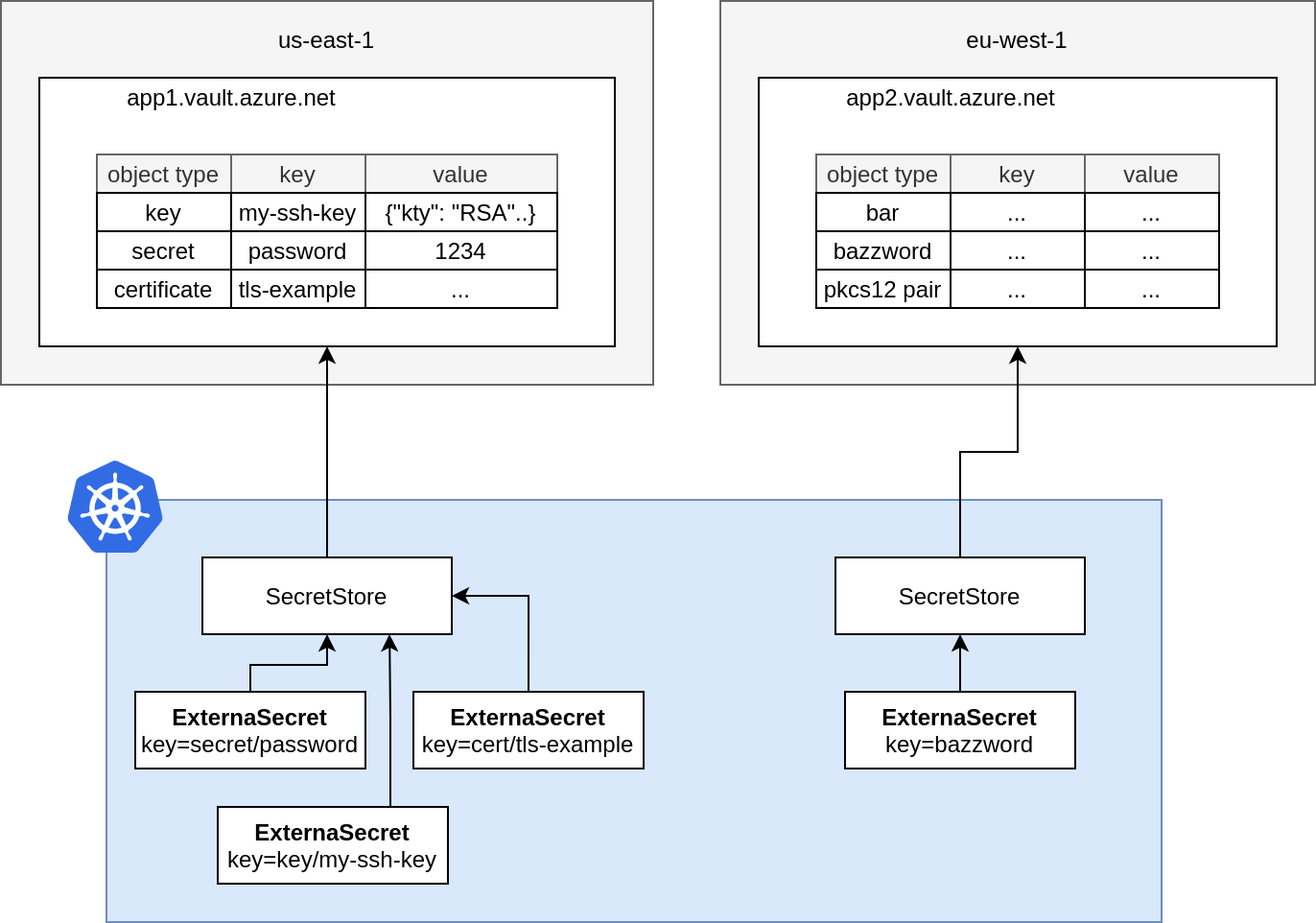3 KiB
Azure Key vault
External Secrets Operator integrates with Azure Key vault for secrets, certificates and Keys management.
Authentication
At the moment, we only support service principals authentication.
Service Principal key authentication
A service Principal client and Secret is created and the JSON keyfile is stored in a Kind=Secret. The ClientID and ClientSecret should be configured for the secret. This service principal should have proper access rights to the keyvault to be managed by the operator
{% include 'azkv-credentials-secret.yaml' %}
Update secret store
Be sure the azkv provider is listed in the Kind=SecretStore
{% include 'azkv-secret-store.yaml' %}
Object Types
Azure KeyVault manages different object types, we support keys, secrets and certificates. Simply prefix the key with key, secret or cert to retrieve the desired type (defaults to secret).
| Object Type | Return Value |
|---|---|
secret |
the raw secret value. |
key |
A JWK which contains the public key. Azure KeyVault does not export the private key. You may want to use template functions to transform this JWK into PEM encoded PKIX ASN.1 DER format. |
certificate |
The raw CER contents of the x509 certificate. You may want to use template functions to transform this into your desired encoding |
Creating external secret
To create a kubernetes secret from the Azure Key vault secret a Kind=ExternalSecret is needed.
You can manage keys/secrets/certificates saved inside the keyvault , by setting a "/" prefixed type in the secret name , the default type is a secret. other supported values are cert and key
to select all secrets inside the key vault , you can use the dataFrom directive
{% include 'azkv-external-secret.yaml' %}
The operator will fetch the Azure Key vault secret and inject it as a Kind=Secret
kubectl get secret secret-to-be-created -n <namespace> | -o jsonpath='{.data.dev-secret-test}' | base64 -d
